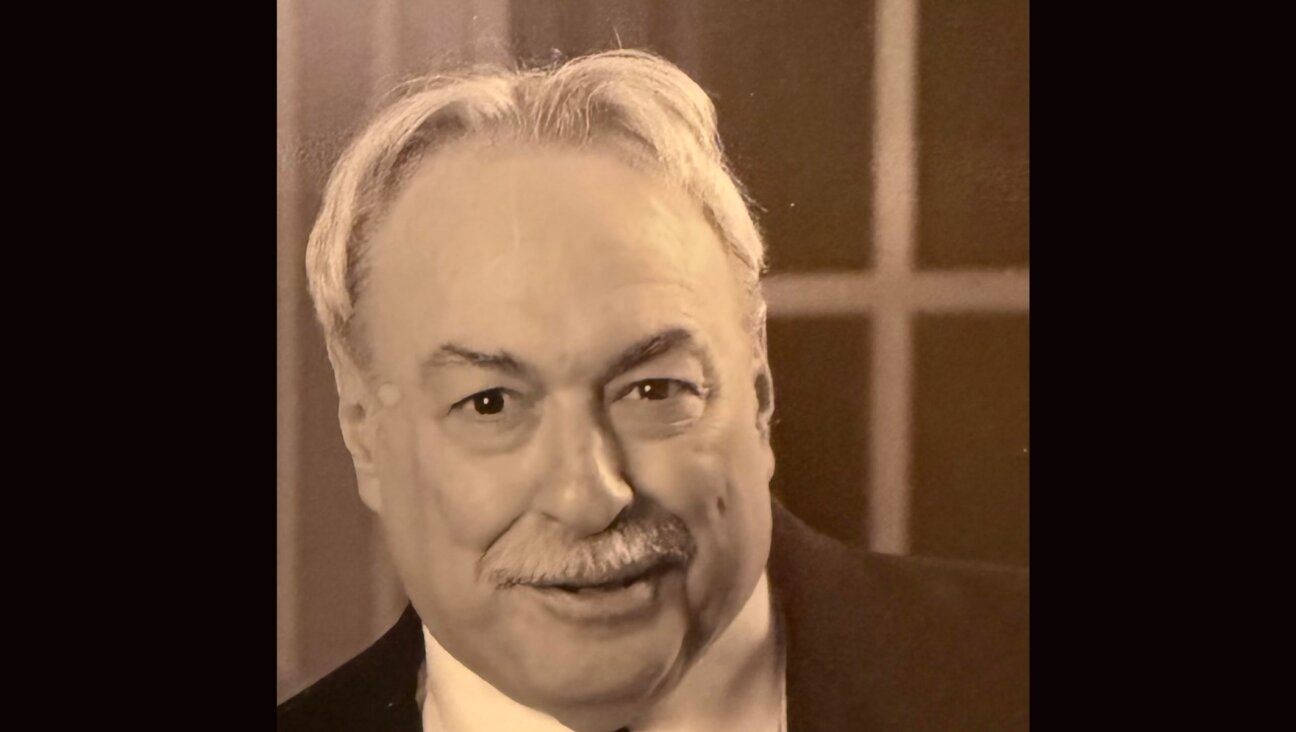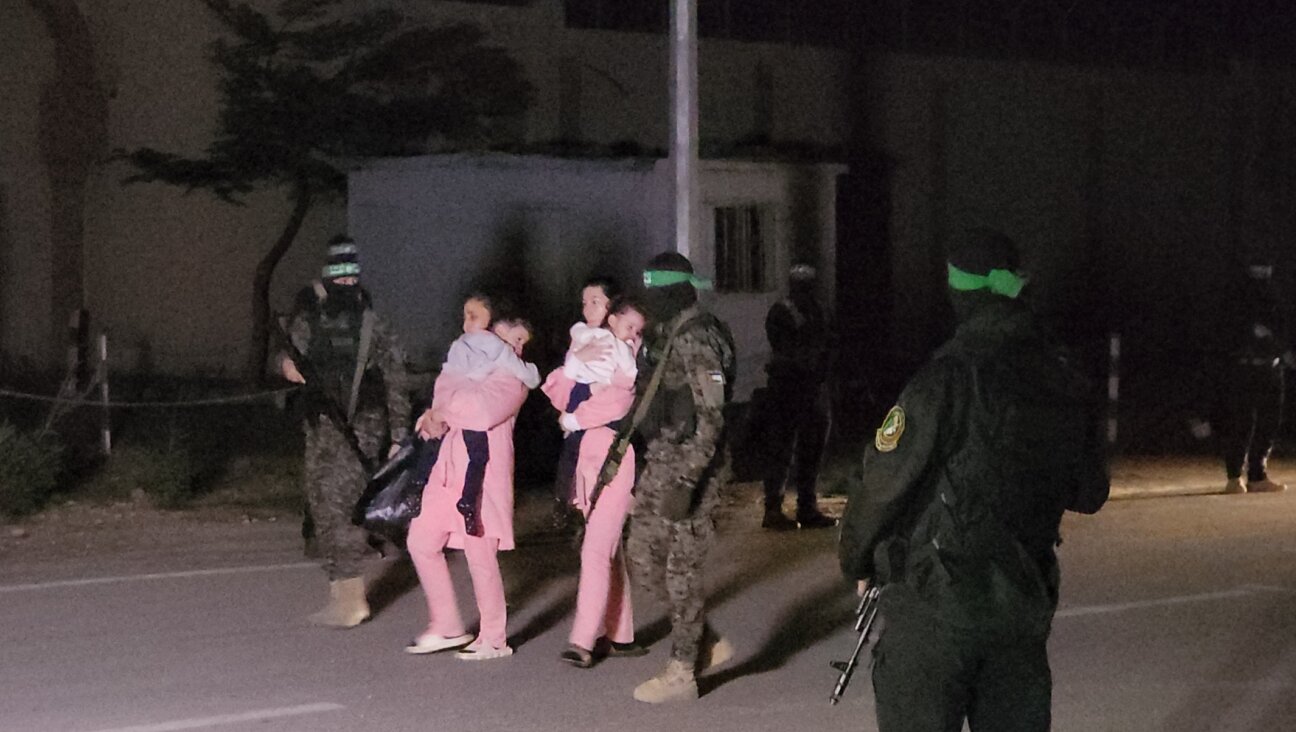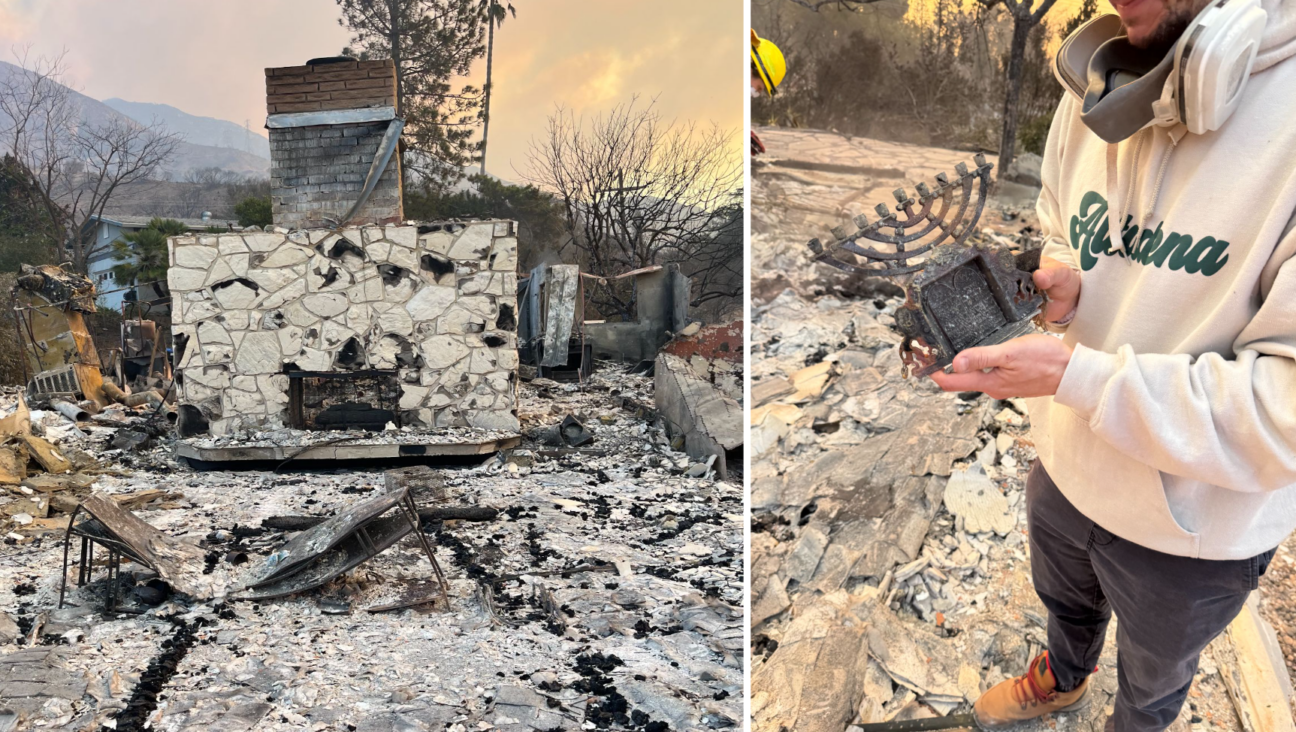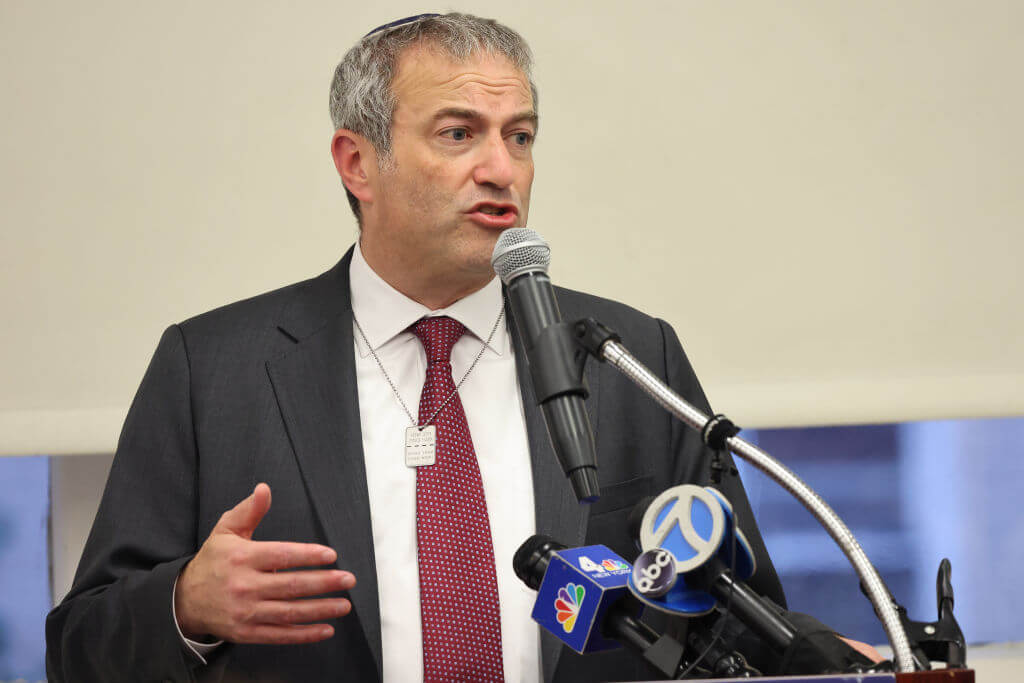Jon Stewart’s Cronies Stand Up for Atzum
Before agreeing to perform at next Monday’s “Up We Stand” benefit for the Israeli charity Atzum, the chasidic reggae artist Matisyahu hesitated. He usually asks his rabbi for permission before performances.
For those pious people who may be wondering: Is it okay to laugh it up for Israel? Don’t worry about it. It’s for a good cause.
A carnival of comic heavyweights will take to the Knitting Factory’s main stage in downtown Manhattan at “Up We Stand.” Demetri Martin, the wry, shaggy-haired comedian will be performing, as will Lewis Black of Comedy Central’s “The Daily Show with Jon Stewart” and the soft-spoken Todd Barry, among others.
The show was put together by Rob Kutner, Eric Drysdale and Dan Powell — two writers and a producer for “The Daily Show.”
“Eric and Dan are very big machers in the New York comedy scene — with Jewish and non-Jewish comedians,” Kutner said.
Kutner first began raising support for Atzum last year, when he and his wife hosted a fundraiser through the Shtibl Minyan, the liberal prayer group Kutner co-founded in Los Angeles when he was a writer on HBO’s “Dennis Miller Live.” (The Shtibl Minyan garnered attention when it picketed the Democratic National Convention in 2000, accusing the party of compromising on a host of liberal issues.)
It was friends from the minyan, Rob and Lamelle Ryman, who first told Kutner about Atzum, which he says does not contradict his left-leaning politics. It is the kind of charity he can support, he said, describing it as “apolitical”
Last year’s fundraiser raised $25,000 for Atzum; he’s hoping to repeat that success next week.
In some ways. Atzum is a charity of forgotten causes. While many charities have sprung up in recent years to help victims of terror living in Israel, Atzum takes on the less-well-known victims of terror: those hurt in terror attacks before the intifada started, when shootings or bombings by rogue terrorist organizations were notorious but not nearly as commonplace as they are today.
“None of the people [who were attacked by terrorists] before September 2000 are eligible for” government help, said Rabbi Levi Lauer, the American-born founder of Atzum. “Nobody whose family members were hurt before September 28, 2000, is eligible.”
Roberta Bernstein, a New York-born social worker, is Atzum’s lone crusader for these victims of terror. At her home in Jerusalem, Bernstein sifts through referrals made to her by government agencies and tries to do everything possible to help these victims.
Bernstein discovered a musical arranger suffering from severe depression after his daughter was killed in a 1995 terrorist attack; he had quit his job, divorced his wife and spent his days in a small room submerged in the fog of depression. When the musician’s other daughter was injured in a terrorist attack in the recent intifada, the man became suicidal. “He was staring at this one bare wall” in his apartment, Bernstein said.
But no government agency could help the musician; he was not designated a victim of terror, so he was referred him to Atzum; Bernstein took up his case.
Atzum bought the musician an elaborate computer with state-of-the-art music software. He began composing again. “He said, ‘I realize the only thing to save my life is music,’” Bernstein said, referring to a letter the man had written to Atzum to express his gratitude.
“It’s giving him an income,” Bernstein said. “He’s returning slowly but surely.”
But pre-intifada terror victims are only a part of Atzum’s mission. Atzum keeps an eye on the handful of aging righteous gentiles — most of whom hail from the former Soviet Union — who saved Jews during the Holocaust and subsequently made their home in Israel.
“They get a generous grant from the government — about 6,000 shekels a month [about $1,350] — so they’re not starving,” Lauer said. But not all of their needs are provided for. “Many of them lack really good dentures or hearing aids. Some of them live in fourth-floor walkups and need home assistance. Some suffer serious memory loss. … [These people who] in the bravest way saved our bubbes and zaydes, whatever they ask for shouldn’t be too much.”
A second social worker, Nomi Roth Elbert, works with these righteous gentiles, assisting with their medical, financial and household needs.
Atzum also advocates for foreign workers in Israel — many of whom are fired from their jobs, then shipped home, after being injured — and they’re starting to combat Israel’s illegal sex trafficking.
Elbert, Lauer and Bernstein have been steadfast in raising money from donors in the United States. Last year, they enlisted a crew of eight San Francisco synagogues to convince their congregants to forgo their Starbucks coffee for one day and contribute the money saved to Atzum. They raised thousands of dollars.
Unlike some charities that have developed in the wake of the intifada, Atzum remains politically neutral.
“I was very inspired by it,” said Kutner. Raising money for Atzum in a real way “ameliorates the pain of those who have to live with it every day.”
For additional information about Atzum, please visit www.atzum.org. Tickets for “Up We Stand” may be purchased from www.knittingfactory.org or by calling 212-219-3132.
A message from our Publisher & CEO Rachel Fishman Feddersen

I hope you appreciated this article. Before you go, I’d like to ask you to please support the Forward’s award-winning, nonprofit journalism so that we can be prepared for whatever news 2025 brings.
At a time when other newsrooms are closing or cutting back, the Forward has removed its paywall and invested additional resources to report on the ground from Israel and around the U.S. on the impact of the war, rising antisemitism and polarized discourse.
Readers like you make it all possible. Support our work by becoming a Forward Member and connect with our journalism and your community.
— Rachel Fishman Feddersen, Publisher and CEO























